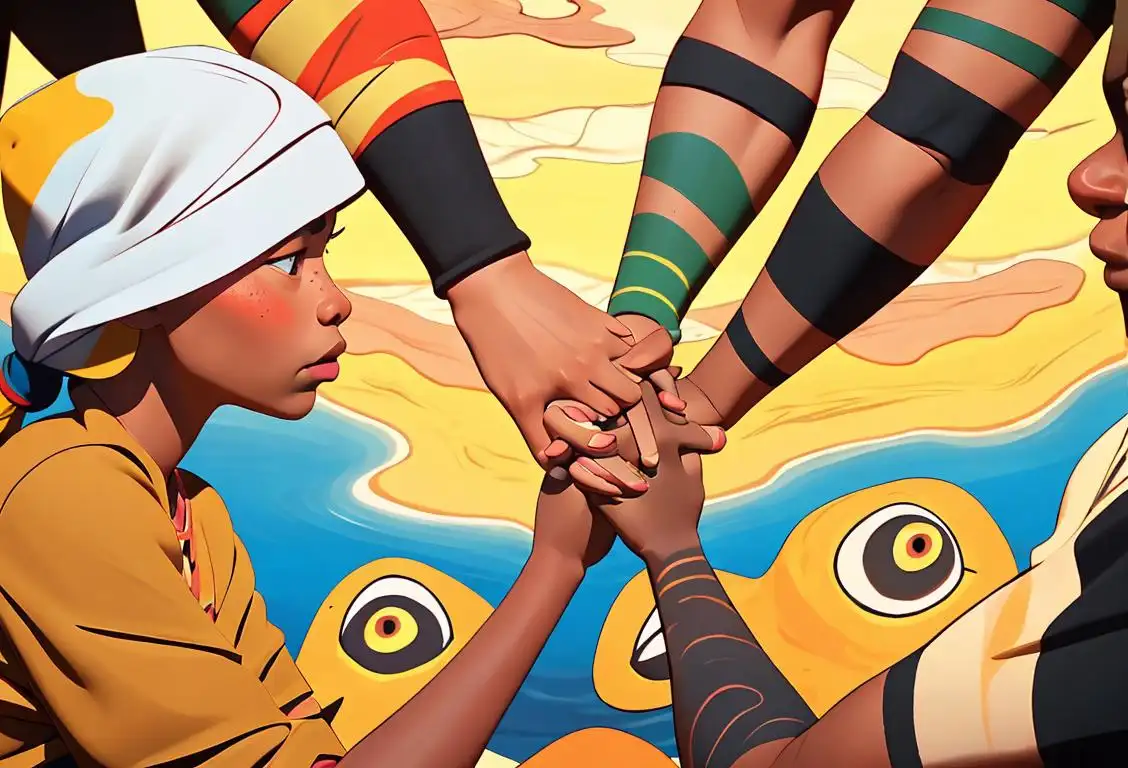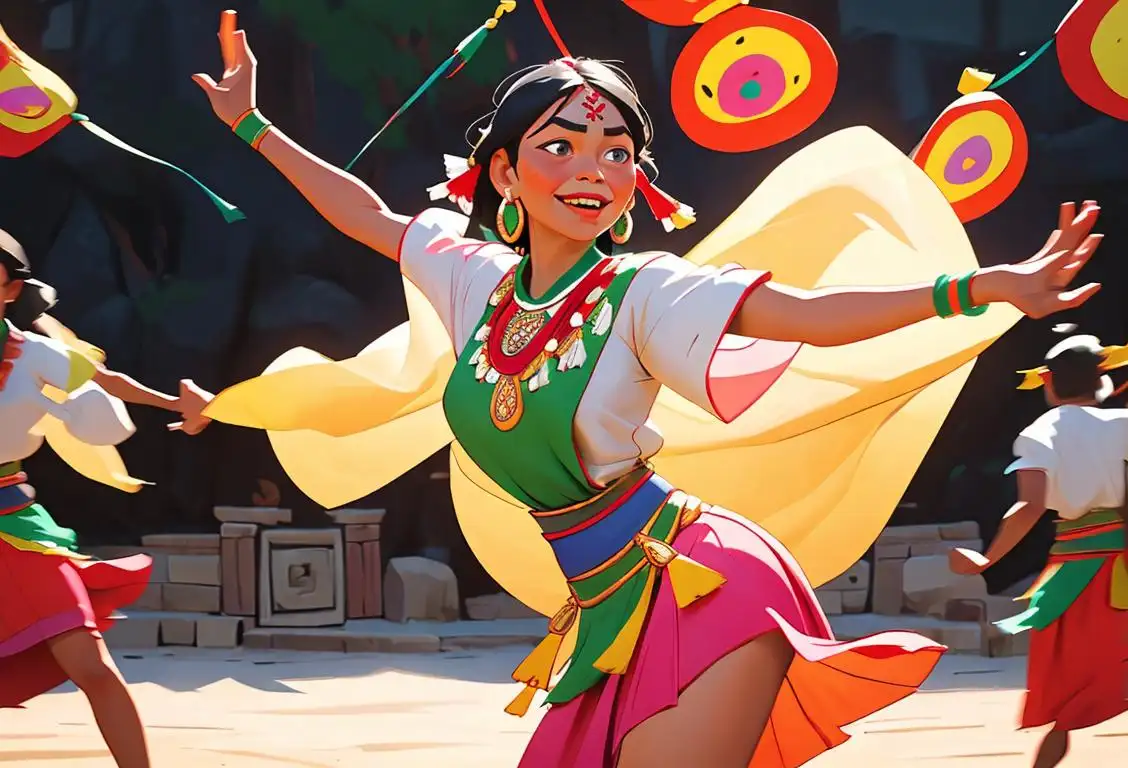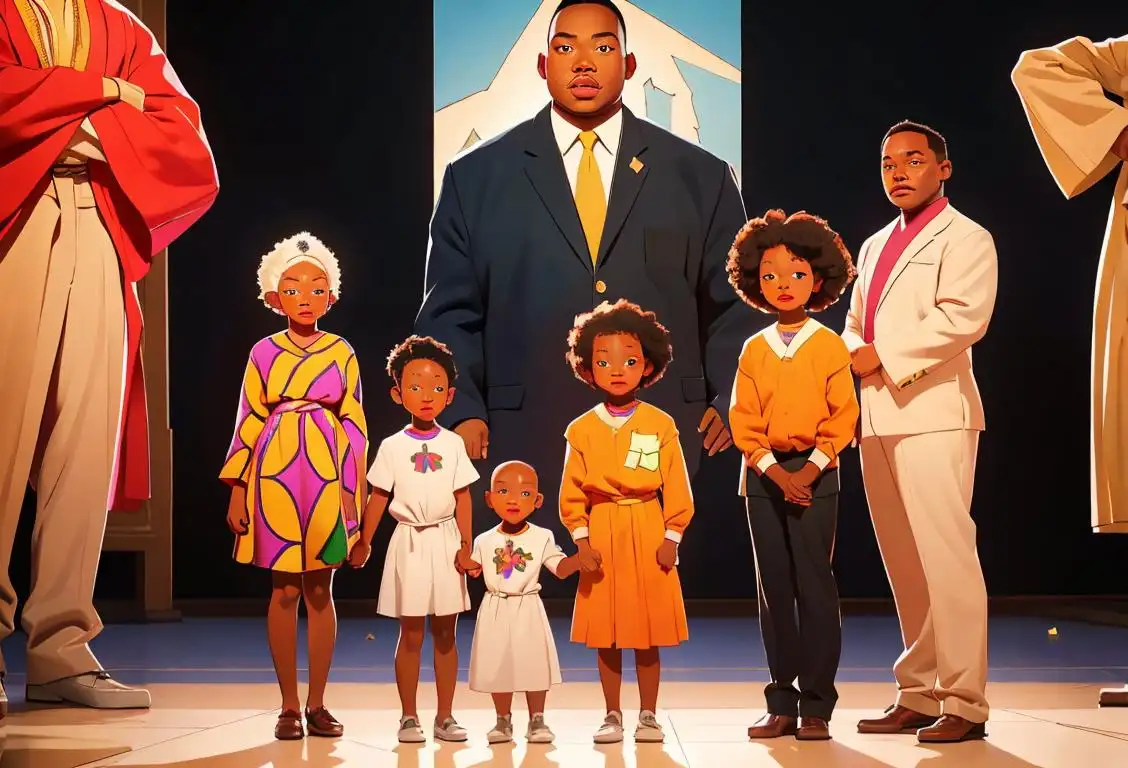National Aboriginal Languages Day

Welcome to the fascinating world of National Aboriginal Languages Day! This day is dedicated to celebrating the rich and diverse languages spoken by Aboriginal communities worldwide. So, grab your language dictionaries and get ready to immerse yourself in a linguistic journey like no other.
When is Aboriginal Languages Day?
It's national aboriginal languages day on the 31st March.
History of National Aboriginal Languages Day
Language is a beautiful form of expression and communication. It shapes our culture, preserves our heritage, and connects us to our roots. National Aboriginal Languages Day is a reminder of the importance of honoring and revitalizing the languages spoken by Aboriginal peoples. It serves as a tribute to the linguistic treasures that have been passed down through generations.
The origins of National Aboriginal Languages Day can be traced back to March 31, 2017, when it received the highest number of mentions online. This date holds significance as it marks a turning point in recognizing the significance of Aboriginal languages globally. People from different walks of life came together to celebrate the linguistic diversity and cultural heritage of Aboriginal communities.
Why Celebrate National Aboriginal Languages Day?
Celebrating National Aboriginal Languages Day is a way to acknowledge and appreciate the invaluable contributions of Aboriginal languages. It encourages us to discover and learn about the unique grammar, vocabulary, and pronunciation of these languages. By immersing ourselves in Aboriginal languages, we gain insight into the rich tapestry of indigenous cultures and deepen our understanding of their ancestral wisdom.
Furthermore, National Aboriginal Languages Day plays a crucial role in supporting language revitalization efforts. Many Aboriginal languages are endangered due to colonization, cultural assimilation, and modernization. By celebrating and promoting these languages, we contribute to their preservation and encourage future generations to embrace their linguistic heritage.
How to Celebrate National Aboriginal Languages Day
There are numerous ways to celebrate National Aboriginal Languages Day and show your appreciation for Aboriginal languages. Here are a few suggestions to get you started:
- Attend language workshops or classes to learn the basics of an Aboriginal language.
- Explore online resources to discover language-learning apps or websites dedicated to Aboriginal languages.
- Share your newfound knowledge by teaching others a few words or phrases.
- Support local Aboriginal communities by attending cultural events or purchasing handmade crafts.
- Encourage educational institutions to include Aboriginal languages in their curriculum.
Did You Know?
In 2019, the United Nations declared 2019 as the International Year of Indigenous Languages. This global initiative aimed to improve the preservation, revitalization, and promotion of indigenous languages worldwide. It brought international attention to the importance of safeguarding these languages and the cultural heritage they embody.
History behind the term 'Aboriginal Languages'
1788
British colonization of Australia
In 1788, British settlers arrived in Australia and established the colony of New South Wales. This marked the beginning of British colonization in the continent, leading to significant changes in the indigenous population and their languages.
1800s
Suppression and decline of indigenous languages
During the 19th century, the British colonial government actively suppressed aboriginal languages and sought to assimilate indigenous communities into European culture. This suppression resulted in a decline of many indigenous languages as they were discouraged or forbidden from being spoken.
1960s
Recognition and revitalization efforts
In the 1960s, there was a growing recognition of the importance of preserving indigenous languages and cultures. Efforts began to revitalize aboriginal languages through language programs, education, and community initiatives.
1991
Official recognition of aboriginal languages
In 1991, the Australian federal government acknowledged the rights of indigenous people to their languages and recognized the significance of aboriginal languages as part of Australia's cultural heritage. This recognition led to increased support for language preservation and revitalization efforts.
Present day
Ongoing efforts and language revival
Today, there are ongoing efforts to document, preserve, and revive aboriginal languages. Language programs, cultural initiatives, and collaborations between indigenous communities, linguists, and educational institutions play a crucial role in ensuring the survival and revitalization of aboriginal languages for future generations.
Did you know?
Language is like a secret code that connects us to history, culture, and diverse perspectives. So, why not unlock the world by celebrating National Aboriginal Languages Day?Tagged
awareness culture languagesFirst identified
31st March 2015Most mentioned on
31st March 2017Total mentions
819Other days
Aboriginal Languages Day
Geordie Day
Indigenous Day
African American Museum On Mlk Day
Goth Day
Noodle Day
Moving To Canada Day
Handloom Day
History Day
Eat What You Want Day








